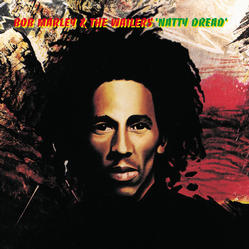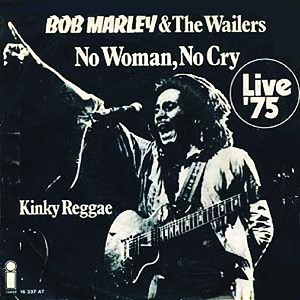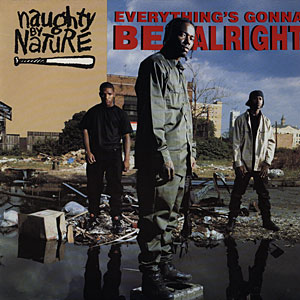
Natty Dread is the seventh album by Bob Marley and the Wailers, released in 1974. Previously Marley had recorded with Peter Tosh and Bunny Wailer as the Wailers, and this was his first record without them.

Uprising is the twelfth studio album by Bob Marley and the Wailers released in 1980. Lead vocalist Bob Marley died the following year, and Uprising was the final studio album released during his lifetime. The album is one of Marley's most directly religious, with nearly every song referencing his Rastafarian beliefs, culminating in the acoustic recording of "Redemption Song".

Exodus is a 1977 album by Jamaican reggae band Bob Marley and the Wailers, first released in June 1977 through Island Records, following Rastaman Vibration (1976). The album's production has been characterized as laid-back with pulsating bass beats and an emphasis on piano, trumpet and guitar. Unlike previous albums from the band, Exodus thematically moves away from cryptic story-telling; instead it revolves around themes of change, religious politics, and sexuality. The album is split into two halves: the first half revolves around religious politics, while the second half is focused on themes of making love and keeping faith.

Desmond Dekker was a Jamaican ska, rocksteady and reggae singer-songwriter and musician. Together with his backing group The Aces, he had one of the earliest international reggae hits with "Israelites" (1968). Other hits include "007 " (1967), "It Mek" (1969) and "You Can Get It If You Really Want" (1970).
Studio One is one of Jamaica's most renowned record labels and recording studios; it has been described as the Motown of Jamaica. The record label was involved with most of the major music movements in Jamaica during the 1960s and 1970s, including ska, rocksteady, reggae, dub and dancehall.

"No Woman, No Cry" is a reggae song by Bob Marley and the Wailers. The song was recorded in 1974 and released on the studio album Natty Dread.

Bob Marley and the Wailers were a Jamaican ska, rocksteady and reggae band. The founding members, in 1963, were Bob Marley, Peter Tosh, and Bunny Wailer.
Joseph Benjamin Higgs was a reggae musician from Jamaica. In the late 1950s and 1960s he was part of the duo Higgs and Wilson together with Roy Wilson. He was a popular artist in Jamaica for four decades and is also known for his work tutoring younger musicians including Bob Marley and the Wailers and Jimmy Cliff.
"Simmer Down" was the first single released by The Wailers, accompanied by the ska supergroup, The Skatalites, and produced by Clement "Coxsone" Dodd in 1963. It was the number one hit in Jamaica in February, 1964.
Heartbeat Records is an independent record label based in Burlington, Massachusetts. The label specializes in Jamaican music.

The Wailing Wailers is the 1965 eponymous debut studio album by the Wailers, later known as Bob Marley and the Wailers. Released on the Studio One label, the album is a compilation of various recordings made between 1964 and 1965 by Neville “Bunny” Livingston, Robert Nesta Marley and Peter McIntosh. It compiles what Clement Coxsone Dodd considered the best Wailers recordings from this period. They were accompanied by the Studio One backing band, The Soul Brothers.

Ziggy Marley and the Melody Makers were a Jamaican-American reggae family group whose line-up consisted of the children of musicians, Bob Marley and Rita Marley, which includes lead singer Ziggy Marley with Sharon Marley, Cedella Marley, and Stephen Marley. Formed in 1979 in Brooklyn, New York, Ziggy Marley and the Melody Makers members began their musical endeavours in their pre-teens under the name the Melody Makers.
"One Love" is a ska song by Bob Marley's original group The Wailers from their 1965 debut studio album The Wailing Wailers. It was rerecorded as part of the 1970 medley "All in One", which contained reggae reworkings of their early ska songs. This was released as a single and is also included on the compilation African Herbsman under the name "All in One".

Robert Nesta Marley was a Jamaican singer, musician, and songwriter. Considered one of the pioneers of reggae, his musical career was marked by fusing elements of reggae, ska, and rocksteady, as well as his distinctive vocal and songwriting style. Marley's contributions to music increased the visibility of Jamaican music worldwide, and made him a global figure in popular culture to this day. Over the course of his career, Marley became known as a Rastafari icon, and he infused his music with a sense of spirituality. He is also considered a global symbol of Jamaican music and culture and identity, and was controversial in his outspoken support for democratic social reforms. In 1976, Marley survived an assassination attempt in his home, which was thought to be politically motivated. He also supported legalisation of marijuana, and advocated for Pan-Africanism.

"Everything's Gonna Be Alright" is the second single released in November 1991 from American hip hop group Naughty by Nature's self-titled second album (1991). The song is titled "Ghetto Bastard" on uncensored versions of the eponymous album. While not as successful as their previous single, "O.P.P.", "Everything's Gonna Be Alright" managed to make it to 53 on the Billboard Hot 100 and 9 on the Hot Rap Singles. The song would later appear on both of the group's compilation albums, 1999's Nature's Finest: Naughty by Nature's Greatest Hits and 2003's Greatest Hits: Naughty's Nicest. It was rerecorded for the 2011 release, Anthem Inc.

Winston Jarrett is a Jamaican reggae singer who was part of Alton Ellis's group The Flames in the 1960s before recording with The Righteous Flames and as a solo artist.

"Run for Cover" is a 1967 rocksteady and reggae single by Lee "Scratch" Perry, credited as Lee "King" Perry. The recording featured Perry, his band, Lynn Taitt on guitar and The Sensations as backing singers. It was recorded at Clifford Rae's WIRL studio and appeared on the WIRL record label in Jamaica, then in the UK on Graeme Woodall's Doctor Bird (label), both pressings with "Something You've Got" on the B-side.

Neville O'Riley Livingston, known professionally as Bunny Wailer, was a Jamaican singer-songwriter and percussionist. He was an original member of reggae group The Wailers along with Bob Marley and Peter Tosh. A three-time Grammy Award winner, he is considered one of the longtime standard-bearers of reggae music. He was also known as Jah B, Bunny O'Riley, and Bunny Livingston.
The following outline is provided as an overview of and topical guide to Bob Marley:

This Is Reggae Music: The Golden Era 1960-1975 is a reggae retrospective anthology issued as a 4-CD box set in 2004 by Trojan Records. The anthology, which was compiled by Colin Escott and Bas Hartong, is arranged in chronological order and features tracks by various artists, starting with mento and ska from the first half of the 1960s, then progressing to the slower rhythms of rocksteady and reggae, which both emerged later in the decade, continuing into the 1970s. Several of the acts featured are Derrick Morgan, Desmond Decker & the Aces, Toots & the Maytals, Jimmy Cliff, and Bob Marley and the Wailers.














